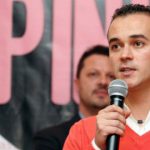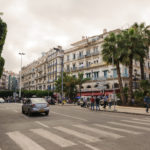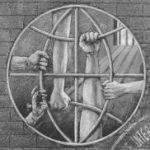A Long Struggle
Yet, somehow, some liberal legislators were able to persuade others to make male same-sexual activity legal in Kosovo in 1970. Since January 1991 Kosovo has had an equal age of consent of 14 regardless of sexual orientation or gender. (http://en.wikipedia.org/wiki/LGBT_rights_in_Kosovo)
Internally, long-term tensions between 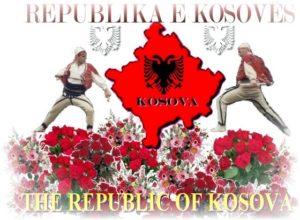 Kosovo’s ethnic Albanian and Serb populations have left Kosovo culturally divided that resulted in a war in 1999. From this chaos, a partially recognized independent Republic of Kosovo has defacto control over most of actual Kosovo territory but in northern Kosovo, the largest Kosovo Serb enclave, control of institutions is held by the Republic of Serbia. Serbia does not recognize the unilateral secession of Kosovo and considers it a UN-governed entity within Serbian sovereign territory.
Kosovo’s ethnic Albanian and Serb populations have left Kosovo culturally divided that resulted in a war in 1999. From this chaos, a partially recognized independent Republic of Kosovo has defacto control over most of actual Kosovo territory but in northern Kosovo, the largest Kosovo Serb enclave, control of institutions is held by the Republic of Serbia. Serbia does not recognize the unilateral secession of Kosovo and considers it a UN-governed entity within Serbian sovereign territory.
Such trauma, tragedy and bloodshed have steamrolled over the personal private lives of countless inhabitants in the territory. To appreciate the impact, compare that military and political upheaval with these comments from a gay male partner living in Europe: “My partner in life is from Kosovo, and we know what gay life is all about in Kosovo. Family ties mean a lot to anybody in there, but if you tell your family that you are gay it can easily mean, that you will loose all your family and friends. It is still very sad to see this happen, especially when we all know that we are borne this way.
There is no other way than hiding and deception to live in Kosovo for somebody who is gay. Or sadly, they could they get married to a woman and make that poor woman’s life an unhappy and unfulfilled life. We both hope and pray that the Kosovo society changes, and hopefully will have a more liberal and understanding way of looking at us .” This was written in June 2011. (http://www.topix.com/forum/world/serbia/TU56VJBE4M9NM11LD)
Religion, the Usual Opponent
To add more to this daunting scene, consider that the draft constitution of of Kosovo was under attack from Roman Catholic political organizations who fought against any effort to protect gay people from discrimination. When Kosovo declared independence from Serbia in 2008 its draft constitution contained specific provisions to protect Kosovans from discrimination on the several grounds including sexual orientation. It also stated that interpretation of the human rights contained in the draft would rely on “the case law of the European Court of Human Rights and other international bodies that oversee the implementation of internationally guaranteed human rights.”
Fortunately the Church lost and Article 24 now prohibits any form of discrimination including sexual orientation. Some forward thinking legalists suggest this could be a possible path to same-sex marriage. However, a court challenge has yet to be seen in the country. A government spokesperson has said it has no plans open up the issue of same-sex marriage.
The two main religions of Kosovo are Islam and Christianity (Catholic, Orthodox and Evangelicals). Muslims make up 90% of Kosovo’s population, both of which are toxic toward same-sex affection.
Liberal Laws, Closed Minds
Although Kosovo has among Europe’s most progressive anti-discrimination laws public attitudes continue to be very homophobic and it is unclear and uncertain to what extent the anti-discrimination law is applied. In 2007, a gay man from Kosovo was granted political asylum in the United States after presenting evidence of repeated beatings and harassment. He was able to prove harassment by hospital staff where he reported his injuries as well police where he reported hate crimes.
Gay Scene
Internet research reveals (as of March 2012) there is no gay rights based organization working directly and properly in gay rights. As of 2007 there was an organization called Center for Social Emancipation (QESh) but since that date no recent referral to them can be found on
the Internet. This is not surprising since serious threats against the leader of QESh were made: “The Center for Social Emancipation (QESh) and the Youth Initiative for Human Rights demanded the Kosovo Police Service to conduct a thorough investigation of the case of serious threats to leader of QESh and bring the perpetrators in front of the justice…” (http://www.iglyo.com/content/article.php?id=QA000219 May 2007)
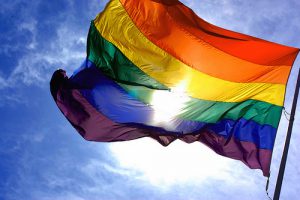 Other referrals describe gay life in Kosovo as being “very underground”. Pristina or other Kosovan cities have no gay clubs, and there have so far been no gay pride parades. In 2011 there was some effort to open the first gay bar in the center of Pristina it soon closed soon due to media exposure and harmful comments from people.
Other referrals describe gay life in Kosovo as being “very underground”. Pristina or other Kosovan cities have no gay clubs, and there have so far been no gay pride parades. In 2011 there was some effort to open the first gay bar in the center of Pristina it soon closed soon due to media exposure and harmful comments from people.
Currently, the best way to get in contact with gay people is throughout social networking like Facebook, Gayromeo, Gaylbania.
www.gaylbania.com is the first website that was created just for Albanian gay community especially those living in Kosovo, Albania and Macedonia. This site also offers a gay guide of Pristina.
That said, Charles and Fred report on their blog, “in Pristina there is a big gay community and many gay friendly places you can go and feel free; you just need to ask the right persons for more info.”
A Personal Story
Source: balkaninsight.com
(Also: http://www.topix.com/forum/world/serbia/T5F7H9PEKAP84RSQ6 and http://madikazemi.blogspot.com/2009/09/secret-life-of-kosovos-gay-community.html)
September 23, 2009
Arian is an attractive young man who lives in Prishtina. His phone rings during our coffee break and he insists he must take it, since it is his partner. However, most do not know that his partner is a man. “Sorry, he gets mad when I don’t pick up, you know the way relationships go,” he says.
Young men and woman constantly stroll down the streets hand in hand, share intimate dinners in the city’s many restaurants, and openly flirt in the bars and cafes. But when Arian goes out for a drink with his boyfriend they appear just friends – homosexuality remains a taboo in Kosovo. “Our religion outlaws homosexuality, and extremists beat gays. I’ve been physically and emotionally abused so I keep the fact that I am gay to myself,” Arian says.
With the Albanian government’s latest proposal for legalising same-sex marriages, and gay pride cancelled in Belgrade this weekend, gay rights have become a hot topic across the Balkans. But the debate has been strangely muted in Kosovo.
And the government has no plans to open up the issue. Government spokesperson Memli Krasniqi told Balkan Insight that this issue doesn’t fall into the government’s current or even future priorities. “This issue is not relevant in Kosovo’s social context. It does not exist as a primary, secondary or tertiary issue to focus on. It is not in the government’s margins of importance, unless we consider looking at the law on marriage,” he said.
As far as gay rights are concerned, Krasniqi said that “the government supports the law against discrimination, which includes discrimination against them”.
However, Arber Nuhiu from the human rights organisation Elysium, which protects the rights of Lesbian, Gay, Bisexual and Transgender individuals, told Balkan Insight that despite the law against discrimination, many gay men and lesbians face abuse and prejudice. “The constitution, thankfully, has a law against discrimination on the grounds of sexual orientation, but the government does not directly support or fund this cause. They haven’t financially supported our organisation at all,” he said.
The Story Behind the Closed Gay Bar
From: BalkanInsight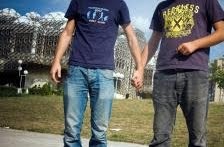
13 Dec 2011
Lone Gay Bar’s Closure Leaves Kosovo Gays Bereft
This abrupt opening and closure of a pioneering gay-friendly venue in Pristina has highlighted the embattled status of this maringalised community.
The media furor surrounding the rapid opening and closure of Kosovo’s first gay bar has exposed the precarious position of the gay community in this deeply conservative, mainly Albanian land.
The Pure Pure Club briefly hit the limelight in September when an online news portal revealed that it was being advertised on a popular gay website as “Pristina’s first gay friendly bar”. But the venue closed soon after this unwanted publicity and is now being renovated under a new name, leaving Kosovo’s beleaguered gay community feeling more isolated than ever.
Doomed by Publicity
It’s Saturday night and across the bars and clubs of Pristina, young people are partying, much like their peers elsewhere in the Western world.
But while these trendy youngsters dream of visa liberalization and of easier travel to the EU, young gays in Kosovo have nowhere to go out and share dreams with potential friends and partners.
Beni and his partner pretend to be “best friends“in order to protect themselves. “You can’t tell anyone [that you are gay],” he said. “Most people here think it is a sickness and not normal.” Beni has to be careful to avoid detection. “I know how to act around people,” he explained. “The less effeminate a homosexual man in Kosovo is, the less he is likely to end up in a situation. “You have to know how not to come across as too feminine, because then people notice and you can get into trouble.”
Most homosexuals in Kosovo meet each other through social networks aimed such as Gaydar or Gayromeo, organizing secret parties, often in private residences. But in September, a member of Gayromeo announced the opening of a gay bar and restaurant near Pristina’s football stadium called the “Pure Pure Lounge Bar”.
The information was picked up by the news website Lajme Shqip, which sent a photographer along to snap those attending the event. “We are at risk – you should know this,” one of the organisers told the photographer, according to lajmeshqip. “Someone could bomb us here or set fire to the whole place,” he added. While there was no attack on the bar, the publicity did attract unwanted attention and a barrage of homophobic abuse online.
Pure Pure has not reopened since, and is currently being refurbished under a new name, “Pepper Chill Bar”. A waiter at the Ling bar, opposite the now defunct Pure Pure, told Balkan Insight: “I heard that it was a gay bar but I never went inside.”
He added that most bars in the area were struggling to stay open because they were failing to attract enough customers. “Facebook Bar, a place for Pristina football fans, closed down because they could not afford it anymore,” he said, mentioning one recent casualty.
Another waiter at the same bar said a former colleague had worked at Pure Pure and had waited during a birthday party that doubled up as a gay event. “He told me that every kind of person attended this party,” he said. “Gay couples were coming in and coming out holding hands.”
The publicity surrounding the bar’s status not only led to a flurry of homophobic online comments but also angered the local gay community. “It was ridiculous,” a bisexual man who asked to remain anonymous complained. “Gays are a marginalized group, so you know the consequences that those people may face – some of whom have families. It was reckless to publish information like that in the name of a sensational story,” he added. “I’m just glad they did not publish any pictures from the venue. I guess the journalists must have had a heart.”
The same man added that any publicity was destined to be the kiss of death for such a venue. “It was way too risky to go once it was made public. Then it was doomed,” he said.
Another Personal Story
From: BalkanInsight
13 Dec 2011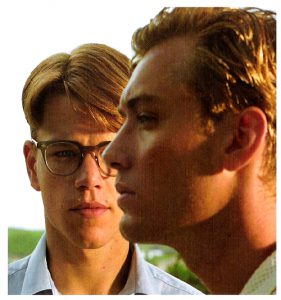
Living a Lie
Beni grew up in Peja, a city in the western Kosovo. He says that lack of a proper sex education made it hard for him to understand his sexuality and recognize it at an early age. “Living in a place like that, it was difficult to know who I really was and where the feelings I had came from,” he said. “I started dating girls to see if I could really like someone.”
Beni failed in his attempts to fall in love with a member of the “right” gender. He soon gave up on repressing his feelings but knew he had to keep it a secret from everybody who did not share his sexual orientation. “Here in Kosovo, everybody knows everybody. I know one guy who told a family member [about his sexuality], so they forced him to marry a woman and reject his feelings and desires,” he said.
Civil society groups working in the field of lesbian, gay, bisexual and transgender rights say they remain marginalised and stigmatised in society. According to LGBT activist Sarah Maliqi, “Because of the high level of homophobia in this traditional society, in which homosexuality is considered shameful and a taboo, these groups are often forced to hide their sexual identity. “Otherwise they risk becoming outcasts and in cases where their identity is revealed they also risk becoming victims of physical and psychological abuse.”
How far this physical and emotional abuse can go was shown in a shocking incident back in 2005, when Gramoz Prestreshi and his friend, Lorik, were beaten up by a gang in Pristina. Both men called the police to report this crime, only to find out that it was the first time anyone in Kosovo had ever reported a “hate crime based on sexual orientation”.
In an interview in 2007, Gramoz recalled that the police started “joking” with them by calling them “faggots” and that even the doctor appointed to take care of their wounds was deeply hostile. “You are sick people. I don’t want HIV in my clinic,” he had said.
Gramoz was granted asylum in the US but the consequences for Lorik were much more tragic. He committed suicide shortly after the incident.
Laws Aplenty on Paper
From: BalkanInsight
13 Dec 11
In theory, Kosovo’s government has outlawed all forms of discrimination in paragraph 24 of its constitution. But issues related to LGBT rights are ignored in practice, campaigners say. Minister of Culture Memli Krasniqi told Balkan Insight in 2009, when he was a government spokesman, that same-sex marriage was “not relevant in Kosovo’s social context. It does not exist as a primary, secondary or tertiary issue to focus on.”
As far as broader civil rights for gays were concerned, however, Krasniqi said that “the government supports the law against discrimination, which includes discrimination against them”.
But A.D, a gay-rights activist in London, whose family comes from Kosovo, says gays in Kosovo remain caught in a Catch-22 dilemma. “The problem is that for a homosexual to sue his offender, he would first have to openly admit that he was homosexual,” he said.
The second problem was that he would have to provide evidence that he had been abused or beaten on account of his sexuality, “which the offenders can easily deny”. Maliqi says that despite all-encompassing nature of the law on discrimination, LGBT people receive no protection in society.
Not much has been done in awareness-raising in public security institutions, and there are many cases when public officials have no professional background and understanding of the rights of sexual minorities, and often, their behaviour results in mistreatment of LGBT persons.
High levels of youth unemployment, up to 70 per cent according to some indices, also mean that young people are financially reliant on parents or older siblings. This also has a major impact on the ability of gay people to ‘come out,’” she explained. “The LGBT community lives a double life,” she continued. “They don’t have the freedom to stand up for their sexuality because of a fear that their families or friends will not understand and that institutions won’t protect them, and also because they often are financially dependent on their families.”
Beni agrees. “I know already what my parents think of homosexuality,” he said. “They despise it and label it as sick and whenever something about it comes on TV they switch the channel immediately.”
Slight change in outlook
Sociologist Linda Gusia, from the University of Pristina, says homophobia is a reflection of Kosovo’s traditional, patriarchal society but the situation is changing. “Sexual identity and sexuality are now discussed in Kosovo and are thought of as more than just a means for reproduction,” she said. “But changes that have to do with sexuality still meet conservative resistance and fear. Traditionalism combined with the economic situation have an impact in fuelling a fear of anything or anyone that is considered different.”
Maliqi thinks the situation could change faster if the media and civil society worked together to promote LGBT rights. “The media should start to treat this topic in an unbiased manner and engage with professionals in these fields,” she said. “Civil society and the LGBT community should work more towards encouraging a debate on the rights of the community as well as universal human rights.”
For now, understanding of homosexuality remains fairly limited among the general public, including the younger generation.
Homophobic Views
Armend, a 22-year-old from Pristina, reflects the homophobic views expressed by many others. “I don’t care about them and their problems, I don’t want to know about them,” he told Balkan Insight. “As long as they don’t run around spreading homosexuality they can do whatever they want in their homes,” he added.
Besnik, 24, from Mitrovica, believes gay people are contaminating society with their imported values. “It’s probably because they can’t get girls or couldn’t while they were young,” he jokes. “Then they start doing perverted things with each other because they saw it on Western television or heard it from the internationals.”
Beni has encountered these views many times. “They think homosexuality did not exist here before and that the international community brought it in,” he said. “They think homosexuality just ‘happens’ to people who are sexually experimenting with the same sex and that for some it becomes a mental issue and they end up being gay.”
Some young Kosovars are a little more tolerant, however. Petrit, 27, from Pristina, describes himself as open-minded. But he said he would still feel wary about the idea of being friends with someone who was clearly gay. “It is simply the fact that people might mistake me for being gay if they saw me with someone who is,” he said. “I would not want that”.
An Analysis and Personal Account of Homosexuality in Kosovo
From: iScoop.com
2006
The rights of homosexuals in Kosovo–Behind a hidden identity
By: Ardiana Bytyçi
Homosexuals of Kosovo are discriminated severely. They keep their identities secret, counting the risks that may face them, a fact admitted by the human rights organizations. Psychologists, socialogists and psychiatrists say that the conservative society would not bear change of gender roles. Police is trying to defend them, but the government has not made a serious attempt to improve their situation.
Personal Story
Tranquilizers and alcohol were his final solution. “Yet another suicide,” themedia announced a few months ago about the 23-year-old man from Prishtina. The cause – it was drugs, the police say. Noone said that the real cause of death for L. B., among the first who came publicly out as gay. But that acceptance has sent him to death. Only his gay friends mention him now, those left in the struggle against a society that does not accept them.
“L.B did not die from overdose, as it frequently said. Before dying, he has several pills of benzedine to overcome isolation, and at that time, his hart stopped working, because he also had alcohol,” says M.B., a member of the community.
Gramoz Prestreshi, another friend of L. B., confirms, blaming the reaction of the society for this tragedy. “We have been completely isolated. It was impossible for us to get out. L.B. did not have power to confront it and had attempted his own death,” he said.
All of them have a personal sad story to tell. The afterword of their sexual orientation, different from that of others, has made them be discriminated, ill-treated in different ways…
Homosexuality remains a thing seen in western movies, but a taboo in public discussions. “Homosexuality is seen as an exception, and the gender roles of the individual who is homosexual are being confused,” said psychiatrist Agim Selimi. The society does not accept them because it is hidebound, prejudiced and ill-informed. Selimi said that the prejudices come from many sources, notwithstanding the religious aspect, because most of the population is Moslem, and the religion has, in a way, banned it.
“People still refer to morality according to the old customary code, but even the morality they take pride in is not something to be proud of,” said Behxhet Shala from the Council for the Defense of Rights and Freedoms of People.
This is the reason why this category is not integrated and will not be so for a long way to come. “The society here would need at least 30 years to start accepting homosexuals as normal people among them,” said Alketa Sala, a psychologist.
Sociologist Mustafe Gara said that those issues should be part of Kosovo’s public debate of developmen, among many taboo issues, otherwise the future would hold no good. For homosexuals, it is one extremely difficult thing to come to terms with it themselves, and to have the society come to terms with it is nearly impossible. “It is hard to admit to yourself that you are gay, let alone the society,” said Sala “If you admit it to yourself, you are stigmatized, are branded as not normal.”
Gara said that the movement of homosexuals for their rights is also very recent, only four years old, and it has suffered from lack of clarity. “They should tell people that their orientation is part of some circumstances. They have no need to be branded, or stigmatized on their own.”
Selimi, the psychiatrist, says that homosexuals tend to victimize themselves further. “I have seen several cases of homosexuals coming to me to treat them psychologically and change their sexual orientation. They wanted to escape from their loneliness and lacked self-confidence.”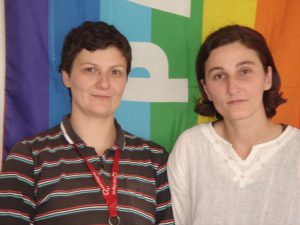
Taboos were broken, but the price was high
Many groups have started to ask for their rights after the Kosovo war, women and children groups. Thus came homosexual rights groups, and when two organizations were created to claim those, many were astonished. Yet their leaders remained secret and mysterious.
The first one, in 2002, was named Elysium. “It was tough early on, because we did not know what to do,” said AN, its executive director. “We started with a web page, then asked for money to start working normally.”
Three years later, the Center for Social Emancipation (whose Albanian acronym QESH is a play on the Albanian word Smile) followed suit in a non-descript building in Prishtina. The shingle that shows its name does not show what it does specifically, which has made others go to their office for help. But the reputation soon preceded the name.
One side of the apartment is working space, the other used for recreation. People are friendly, but become nervous about cameras and do not allow their use. Even their leaders do not want to come out in public. The only one to have overcome that is Prestreshi, who has left for the United States after being physically abused in Kosovo.
“We could not get a normal office in the center of the town, because if one sees QESH on it, one would be afraid and need to worry,” said M.B. a member of the organization. “We are threatened enough as we are, and if one would know where the office is, we would not have lived much longer as an organization.”
A quick glimpse into the organization’s email: “We will kill you!”, “God has not made the earth for you to live in!”, “You will burn in hell,” “You are destroying the society,” “You will be over with soon.”
The government has not much to say
Despite the overall refusal, psychiatrist Agim Selimi says that the creation of the organizations has increased the pressure on the government agencies and the media. But to no avail. “They are denied existence in Kosovo,” he said.
The government has not much to say, claiming lack of laws that would protect homosexuals. Habit Hajredini, director of the Office for Good Governance in the Government of Kosovo, and government coordiantor for human rights, admits that the has done only meetings with them. “We have not sidestepped that community, but are now busy in completing projects that deal with needs of other communities.” He said no such project on homosexual rights has been done. “We could not do even a campaign because of our full schedule.”
K.Z., QESH chairman, said that little has changed in the government’s attitude towards them.
A.N. from “Elysium” said that rights of homosexuals were mentioned in a law on the rights of patients, after many efforts. “We have very good relationships with the Health Ministry, and with the Institute of Public Health as well as the University Hospitals Center,” he said.
But Hajredini said that his institution has received no complaints about the problems in the community, because there are no laws or policies to address it. Hajredini said that the institutions are not ready yet to deal with the issue. “The Kosovan society is not ready. This community finds it difficult to live freely, while we have no laws and find it hard to undertake steps in this direction.”
Two Victims – Case Closed
Psychological suffering is not enough. K.Z. says the community is afraid of being chased away and discriminated by their own families, who do not accept them. He adds that there would be no career for an outed homosexual, no jobs, and not the least, one would be prone to physical violence.
But they have not turned to the police for help very often.
The first case registered with the Kosovo Police Service happened on New Year’s Eve. L.B., yes, the one who committed suicide, and Gramoz Prestreshi were having a party outside the capital. “They were rounded up and beaten because they were gay,” said K.Z. The description in the report was: One has the elbow broken and underwent operation for damaged ligaments, the other had internal bleeding in the eye and knife cuts on the neck.
“Then, Gramoz left for America and L.B. killed himself,” K.Z. said.Gramozi said this was the first one with the police, but not the only one that happened. “What we got from the police was insults,” he said.
K.Z. said that the police who had beaten them, after being suspended for some time, were declared not guilty by the Unit for the Implementation of Professional Standards with the police.
Captain Veton Elshani, police spokesman, says that the service has taken the accusations under consideration, and after investigations and suspension of policemen, no facts were found out and they were absolved from the responsibility.
The Plight of Homosexuals in Kosovo
From: iScoop.com
2006
Their lives changed dramatically since they came to accept themselves as homosexuals. Forlorn, and abandoned by their own families, they found the strength to go on and even feel proud of their sexual orientation. Psychologists and psychiatrists have many theories. Many see it as innate, others as a confusion of gender roles in the family, as a hormona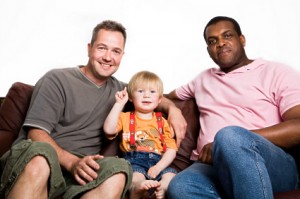 l problem, and others say that social circumstances and even taste as factors.
l problem, and others say that social circumstances and even taste as factors.
Society sees them as mad and perverse. “They have turned themselves against Nature, against God”, is the sentence one hears most. But the homosexual community has barely spoken about their problems. Even if one or two have attended televised debates, they had remained hidden and did not say much.
They appeared in the public life after the war. Bexhet Shala of the KMDLNJ says that there were homosexuals before the war too, but in smaller numbers. “Their number increased after the war, because there are many internationals who belong to this category and openly so. This way, homosexuals enjoy the support of the internationals, but are not accepted by the locals.”
Through hell
Their stories go through dramatic events that they talk about for the first time. Some have gone past the hell and managed to take their own lives in their own hands. Like the 23-year-old M.B. from Prishtina.
She was “the high school beauty.” She dressed nicely, and was adored. She is still beautiful but does not want to talk about it. Life has made her sceptical. She likes to talk to those whom she trusts, and can, in those moments, be happy and social.
At thirteen, she started feeling erotically for the first time for boys. She had a crush on a long-haired boy, with a girlish face. “He was my first boyfriend. Now I know why I loved him, because he looked like a girl,” she said.
But he then was diagnosed with cancer and later died. “I don’t know, it was very hard on me, I was in total despair,” she said. Then she made this admission to herself: “I am lesbian, I love women and not men.”
At age sixteen, she had her first sexual contacts with a woman, who later married a man. “I attended the wedding, and suffered a lot,” she recalls, adding that a few months after the birth of her child, her former partner could not consummate her marriage and was sent to England.
She had no social life during high school. “I became introverted. I did not know anyone in the community, and did not even know whether such a community existed in Kosovo. That scared me,” she said.
In 2003, when she worked for an organization helping people with physical disabilities, a lesbian woman from Italy came to work with her and she was the first to whom M.B. admitted her orientation. “She told me to go and meet the people in the community, and I told myself, surprised, ‘hey, there is one community in Kosovo,’”
This woman is now her partner, and they have even married, albeit not legally, but M.B. also became the first woman to be a member of the community. Her family does not accept this, and it hurts. But she goes on saying that she was sexually abused by her father from the age of five to seven. “I began to feel the consequences later, I could not sleep at night with the fear that he would enter… I would always shut the door. I had nightmares the past two years as if I was raped. My home became my hell and I could not live there,” she says. She has left her home a year ago, and lives with her partner.
Did this incident make her a lesbian? “This has made me hate men, but not love women,” she said. But she does not deny that the social circumstances have further pushed her into her choices.
Kicked out from home
Gramoz Prestreshi, 22, left his studies in sociology, at the university of Prishtina, and jumped on a plane for the United States. Last May he got political asylum in the US, and does not think to return to Kosovo.
He says he has reason to live now. “I am in a safe country. I can be the one I want to be, that is all. I am happy to start my life from zero. It will be difficult, but I am free. It feels like a dream.”
He does not keep in touch with his family, who had denied him, though he is in touch with the gay community in Kosovo.
“I had told my aunt I felt I was homosexual, as I needed to talk to somebody,” he recalls. “She told my parents, and they beat me up. They forced me to abandon the home. They even wanted to kill me on this.” He later found shelter with the two homosexual organizations in Prishtina, QESH and Elysium.
It was impossible for him to change himself. “God knows how hard I tried to be heterosexual,” he said. But he said he felt nothigh from his two former girlfriends. He calls those experiences as loss of time. “You cannot change what God gave you,” he said. “I am proud to be gay.”
Gramoz is not the only one to be expelled from the family. The families, indeed, make all their efforts to “make them straight,” and not only them. Many gay men have taken that step too.
K.L. was among those who had submitted to the will of the parents to go to doctors, psychologists and psychiatrists. “When my family understood I was gay, they went nuts. My father sent me to the psychiatric hospital, because he was convinced I had a grave mental disease. He insisted on the doctors to make me behave normally, though the doctors tried to convince him that not much could be done,” he said. When the father lost hope, he expelled K.L. from the house.
Alketa Sala, the psychologist, says there is no therapy that changes sexual orientation. “They are not alcoholics, who undergo therapy so that they can take away a harmful substance from their body,” she said. “This has to do with one’s orientation, and no one can change that.”
Homosexualism and ‘The Cure’
Is it, then, a disease, a personality disorder or something biological? There are many theories. Psychologist Sala says that if a young girl is raped in her childhood (like the case of M.B.), she develops an internal phobia. “She restrains her feelings towards men and is inclined towards female figures,” she said.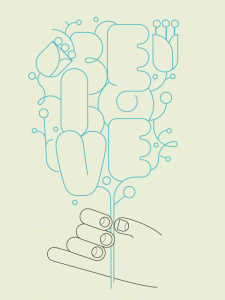
Sala also puts homosexuality as a matter of taste, and says that tastes can change during the life. “All people are heterosexual in the beginning of their lives, because this is what the society tells them to be, but when some see personal difficulties with that, they being having sexual experiences with people of the same sex. That means that a homosexual may turn, in his life, a heterosexual.” She says that the youths in student age are most inclined to experiment with themselves to determine where their tastes are.
But psychiatrist Agim Selimi says that homosexuality is in most cases innate. “Homosexuality may also appear as absence of determining gender roles among parents, because the child learns the gender role during his growing up. Especially among gay men, it happens that the mother has a stronger personality than the father in the family, and when those roles are reversed, and no one knows who plays the leading role in the family. The child, as a consequence, is split among the two figures and remains a homosexual.”
Sala agrees. She said that if the boy grows with his sisters and mothers, he adopts their behaviour, because that would be his model.
Another issue that the medical world poses is the higher HIV infection rates among homosexuals. A.N. from Elysium says though that from 200 tested homosexuals, only two resulted infected.
Whatever the last word on that may be, the bottom line is that they know what they want and that they are happy to have understood that, even going against the odds.
Funded by the Netherlands, Sweden and Switzerland
Elysium lists as its mission to support, protect, advocate, promote and improve the rights and interests of the LGBT community in Kosovo. It is funded by the The Olof Palme International Center from Sweden with about 35,000 euros a year, while the HIV AIDS project is funded by “Partnerships in Health”, a Swiss organization, with 20-30,000 euros a year. The projects end in 2010, until which they would get 115,000 euros.
QESH (last update 2009) has 100 members (three gay women and 97 gay men). The age group of their members is between 18 and 60 years old, but three percent of the membership is made of heterosexual people who support its agenda. Most people who reached it have suffered discrimination of different forms. It works with a fund from the Government of the Netherlands, which covered the expenditure of the founding of the organization and from which QESH gets 15,000 euros every year.
The Rights of Homosexuals in Kosovo
From: iScoop.com
2006
 Demanding Freedom
Demanding Freedom
Homosexuals want the society to overcome the barriers and accept them as normal people with other needs. They demand those rights despite the tremendous odds which they have to fight against. What is now only being discussed, does not bear practical importance, as the homosexuals tend to leave their country.
The society has not freed itself from a concept on morality where marriage is the solution to the relation between two people of different sexes, by which they rear children. Anything beyond that is unacceptable. That is why the people have aversion towards homosexuals.
The latter, differently from what happens in develpped countries, are still fighting for their elementary rights, so talking about gay marriage and gay family adoption is a stretch.
Kosovo has countless other problems, and has forgotten that a community in our country asks to breathe freely. “The society offers us isolation,” says K.Z from QESH.
Institutions do not care about them, because there is not even an investigation into how big the community is. “If we have figures about how far this phenomenon goes, and if the number is big, the institutions would have to take urgent measures for their protection,” said Habit Hajredini, director of the Office for Good Governance in the Government and Government Coordinator for Human Rights.
Legal vacuum–defenseless homosexuals
They are forced to use taxis, they abandon their families and are discriminated in all other forms. Legally, homosexuals do not exist in Kosovo.
Yes, there is one law, against discrimination, but it does not make a specific case for the homosexuals. Article 2 of that 2004 law says that: “the regulation of issues dealing with non-discrimination is founded on the principle of equal treatment, which implies that there would be no direct or indirect discrimination against a person on the grounds of gender, age, marital status, language, physical and mental abilities, sexual orientation, nationality, thought or political beliefs, religion or faith, ethnic or social belonging, race, property, birth or other status.”
That is all the legislation that protects homosexuals in Kosovo, and institutions complain that this is not enough to enable them to work with this community.
Hajredini says that the society should be aware of the issue before the rights of the homosexuals are legally regulated. “If Kosovo’s parliament undertakes a legal step which the citizens would not accept, this may bring confusion. I believe that the institutions and the civil society should first make the Kosovo society aware, launch awareness campaigns to that end.” He believes this would take years.
The first step, according to sociologist Mustafe Gara, is to inform the public opinion about homosexuality not from those “who make opinion in closed doors, but from those who make them from the contacts they have made with them to see what they are really like.”
The homosexuals are inadvertently helping this unpleasant situation, Gara said. “They don’t need to come out and put forth their demands. They should live as other humans do with the laws that are in place. If they are discriminated by the laws, then they should write about that, organize themselves so that they can legally be listened by the opinion,” he said. “Those demands would be taken up by the state institutions, and they would then be legalized.”
The community itself would not care less. “Anything that borders on the illegal can only increase the degree of contempt in which they find themselves.”
Hajredini says that his unit, which coordinates human rights work among 15 ministries, has started talking about policies that would help this community. “We have many other problems during this transition period, but our office has not sidestepped any community. It has given this issue priority,” he said.
The police, part of the problem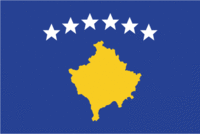
The homosexuals are not satisfied with the police which, they claim, does not behave well with them. Based on the complaints, former police commissioner Kai Vitrup, more than one year ago, had made a special group that would deal with the issues concerning homosexuals, specifically with QESH, which had been harsher in its criticism of the police.
“This group was formed to make policemen aware on how to deal and behave with them when they run into problems, without hurting or victimizing them,” said police spokesman Veton Elshani.
There are two policemen in the Kosovo police who are charged with investigating cases of complaints by the homosexuals. Bexhet Shala says that the Council for the Protection of Human Rights and Freedoms has dealt with 12 complaints from the community, which the Council has sent to the police. “The police take this into consideration and promises their protection, but we don’t know of any case where the police has intervened to protect them,” he said.
A.N. of “Elysium” says that there are only three cases in the police where the victims are presented as gay people, and it has warned the two homosexual organization in both cases. “The problem with the police is that even if we complain, we don’t count of them as factual abuse against homosexuals, because the victims in many cases do not identify themselves as gay,” he said. He blames some gay men who have behaved badly in some cases. He says he himself has not been subject toviolence.
Veton Elshani said the police is working on how to find the best approach to this community. “The society does not accept these people and the police is part of the society. But the police has also its own internal rules and are forced to work based on those rules.”
Marriages and Adoptions are Not Discussed
Legal marriage, then, remains a far away dream. Homosexuals organize parties or ceremonies that resemble marriages, and those are just as secret, and only community members take part.
M.B, who calls herself married but could not legalize it says that marriage is a human right. “Man is born free to live, so he should be free to choose who does he want to live with,” she said.
Habit Hajredini said that Kosovo should follow the experience and mechanisms of other countries regarding this issue. “If Europe will allow it, then we will take such a step, but if those countries do not have this legislation, we, who are not a state yet, would have it even harder than them to implement it.” If that is close to impossible for now, child adoption seems outlandish.
There are disagreements
M.B. talks of problems coming from adoption among heterosexual children, which makes adoption for homosexual couples harder. “Adoption should be better regulated by law,” she said. She says that homosexual couples can be just as good as parents as heterosexual ones.
Alketa Sala, the psychologist, said that noone should be denied the right to be a aparent. “There are other ways besides adoption,” she said. Edhe psikologja, Alketa Sala thekson se askujt nuk mund t’i mohohet e drejta për të qenë prind. “But what is important is that they should be able to offer all living conditions to the child.”
The child reared by homosexual parents, according to Sala, is more inclined to be open, but that does not mean that the child become homosexual when growing up.
Sala talks how a child reared by homosexual parents could grow up with tremendous social pressure. “The idea of ‘normal’ against ‘abnormal’ is strong, and the child would always face that and would not be isolated from the social environment.”
Psychiatrist Agim Selimi insists that children adopted by homosexual couples cannot learn proper gender roles. “The possibility to get this sexual orientation is higher among children living with homosexual parents, and this is a tendency to increase the number of homosexuals in society.”
Sociologist Gara is against child adoption by homosexual couples and homosexual marriages. “If marriage among homosexuals is legalized, then what would this family produce? The family has a meaning. What kind of meaning will those who, from one misfortune make two misfortunes. Instead of living in a family where the child sees live moving forward, the child is put into a family that has come to a standstill.”
Homosexuals wish to overcome some barriers and tell the society that they are normal people with some other desires and needs. They want their rights, though the battle in front of a hostile society seems, at times, lost for good.
Seeking asylum in other countries
A future with full legal protection for homosexuals seems to be very far. Homosexuals are looking for other escape ways, like leaving in a country where they could live their lives freely.
Bexhet Shala of the Council for the Protection of Human Righs and Freedoms, says this is what many are doing, by applying to organizations that defend the rights of asylants, or through lawyers they engaged. “There are not many asylum seeking cases, but they are growing, nevertheless. They try to find a place here, but they leave as soon as they can.”
Kosovo Pride
From: KosovoTwoPointZero
By: Tanja Matić
Sept 15, 2011
Ten years ago the Netherlands allowed municipal marriage for same-sex couples. To celebrate the 10th anniversary of the first marriage (which Job Cohen, who at the time was the mayor of Amsterdam, officiated), this spring, in the halls of the municipalities of Amsterdam and Hague is a photography exhibition about weddings and life of same-sex couples. A few days ago I saw this exhibition in the Hague and once again wondered why such events in the Balkans must be accompanied by riots, instead of support or at least constructive dialogue.
These days I’m following a heated debate in the Serbian media about whether or not to hold a second Pride parade in Belgrade, since last year thousands of police officers defended the participants from angry attackers. The minister of police is shifting the responsibility to the mayor and says that he is waiting on the mayor to decide if the parade should be secured; the mayor has repeatedly made clear his view that the Parade results only in material damage to city facilities, and no reduction of homophobia. Human rights’ advocates and organizers of the parade are trying to explain that everyone’s right to assembly is guaranteed by law and that some EU countries have more than one parade during a year.
Photos from the Pride in Serbia and Croatia are mostly images of violence and anger, but are still the first steps of the bravest ones to secure the right to celebrate love.
And I wonder what is happening with a parade in Kosovo? Is it at least talked about or is it still in the sphere of problems that are left for later? Eight years ago I published a story about the double life which gays in Pristina, and Kosovo in general, have to lead due to society’s refusal to accept them as equals. I, as a heterosexual, can only imagine how stressful and sad it would be if I couldn’t kiss on the street the person I love, if I couldn’t hug them or express any emotions towards them.
Such prohibitions create emotionally handicapped people, and that’s not the basis of a society anyone wants. And that’s why in a society of people that are frightened and vulnerable, we heterosexuals actually bear a great responsibility to speak out and fight for the rights of gay people. We can, and with them others would deal physically. (Although this us and them sounds awful, for the sake of clarity of the text I have to introduce these linguistic divisions)
I don’t know what the current situation is, but I believe that things haven’t improved much in our masculine society. I know many will say that Kosovo currently has bigger problems than Gay Pride, or even that there are no gays in Kosovo, but we all know that’s not true. We all know at least one gay person or someone who is “suspected” of being gay, but who is scared to talk about this with their colleagues or even friends.

